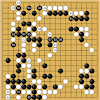Blue JellyFish by Public Domain Pictures.
When we talk about things, when we hear statements, we have the tendency to believe that the information is true especially when the information is coming from a reputable person and organization or the information is coming from a friend or a family. Little do we regard that in this world that we are living, there are only a few universal truths (laws) and that most of the statements we encounter every day are just theories. If you are a college (or high school) graduate you would probably know, that in science, there are only a few “laws” that we can call. We classify a statement as a law if it is unquestionably true, which means that the statement has been proven scientifically many times using statistics, mathematics, and experiments; and no test or evidence can prove that the statement is false.
Laws are being developed with the help of data and empirical evidence using observation and experimentation, in this sense, a law is a discovery rather than a creation; laws are already existing waiting to be discovered. In general, every statement can be a law as long as you can prove that your statement is universally applicable to everything using legitimate evidences. In economics we have – Laws of Supply and Demand, Gresham’s Law, Say’s Law, Law of Diminishing Marginal Utility, Ricardo’s Law, and Okun’s Law. In physics we have – Conservation Laws, Laws of Classical Mechanics, Laws of Gravitation and Relativity, Thermodynamics, Electromagnetism, Photonics, Laws of Quantum Mechanics, and Radiation Laws (to physics students: please correct me if I’m wrong or if I forgot to mention a law). If you observed, economics and physics schools of thought have existed for many years and yet, the laws that each school holds are less than your fingers. So why do we in some cases, believe in people (or information) as if they were speaking of the universal truth? While the fact holds that universal truth is hard to achieve? I think rather classifying information as universally correct, we should be quite critical, and classify most information as “theories” (or hypothesis) subject for testing. It goes with the saying that what can be true to you might be false to others, or what might be helpful to you might not be helpful to others. Therefore, people who claim that their statement or idea is universally accurate should be ready to defend their claim using unquestionable empirical evidence.
In this era of information technology, we are faced with abundant information which can harm or help us or can just drain our time and energy; hence, it essential for us to have a critical mind so that we can decide carefully which information is true or false, important or not important. Knowing that discovering universal truth (law) is not easy (you will become a Nobel prize winner if you discover one), that it requires a lot of labor, evidence, and experimentation; makes us humble enough to recognize that some of the knowledge that we acquired, and opinions we hold, are just intelligent guess.








1 Comments
I have a shared experience of being a jellyfish sometimes, thanks to your article
ReplyDelete